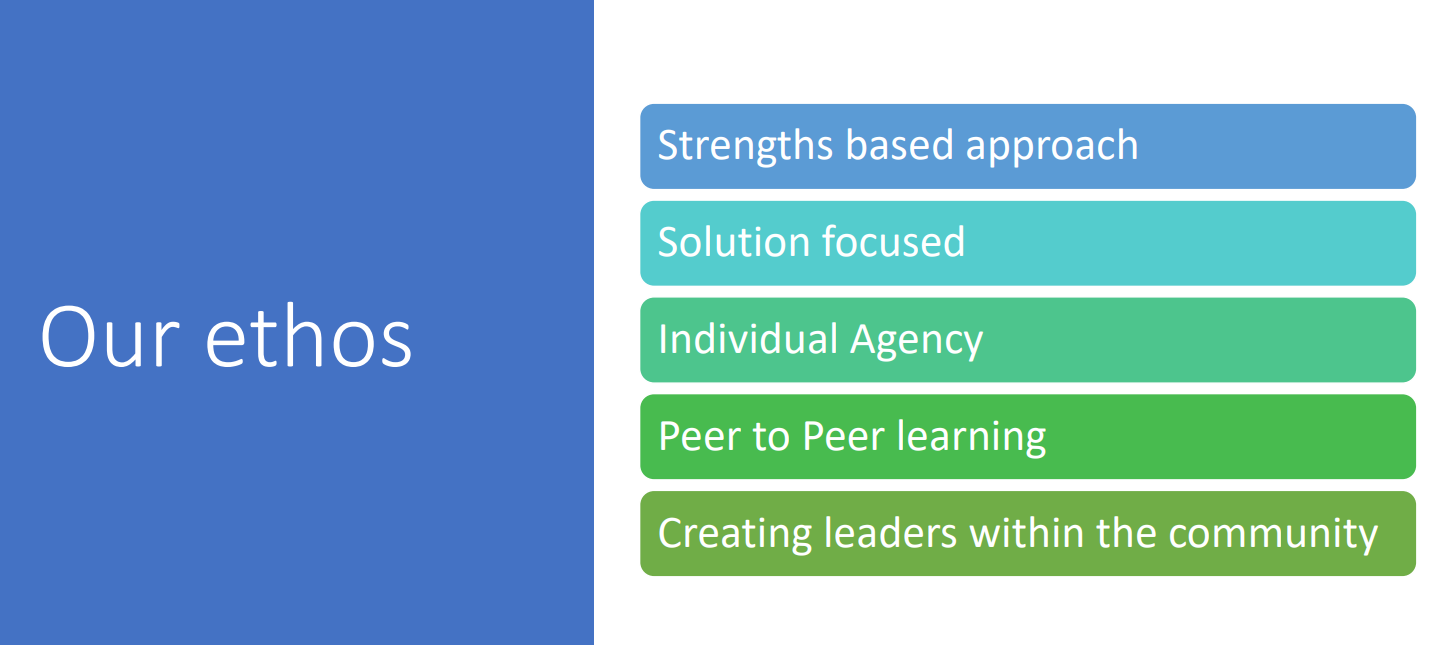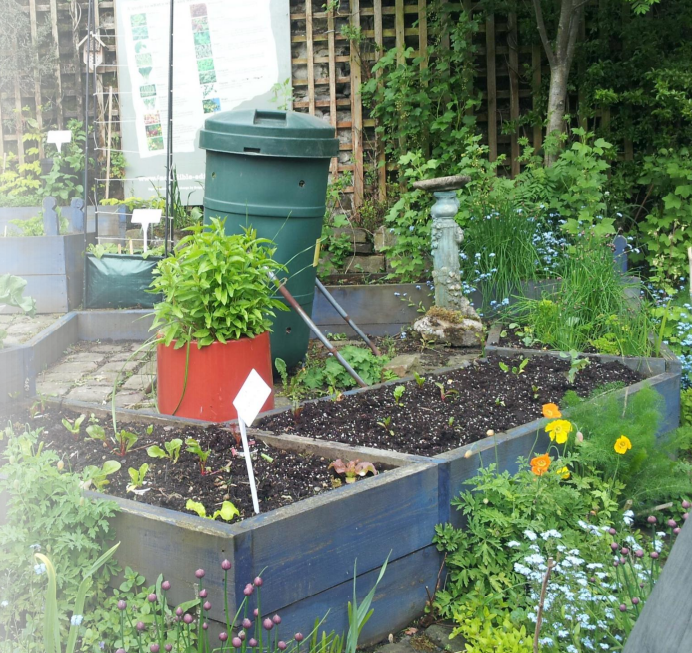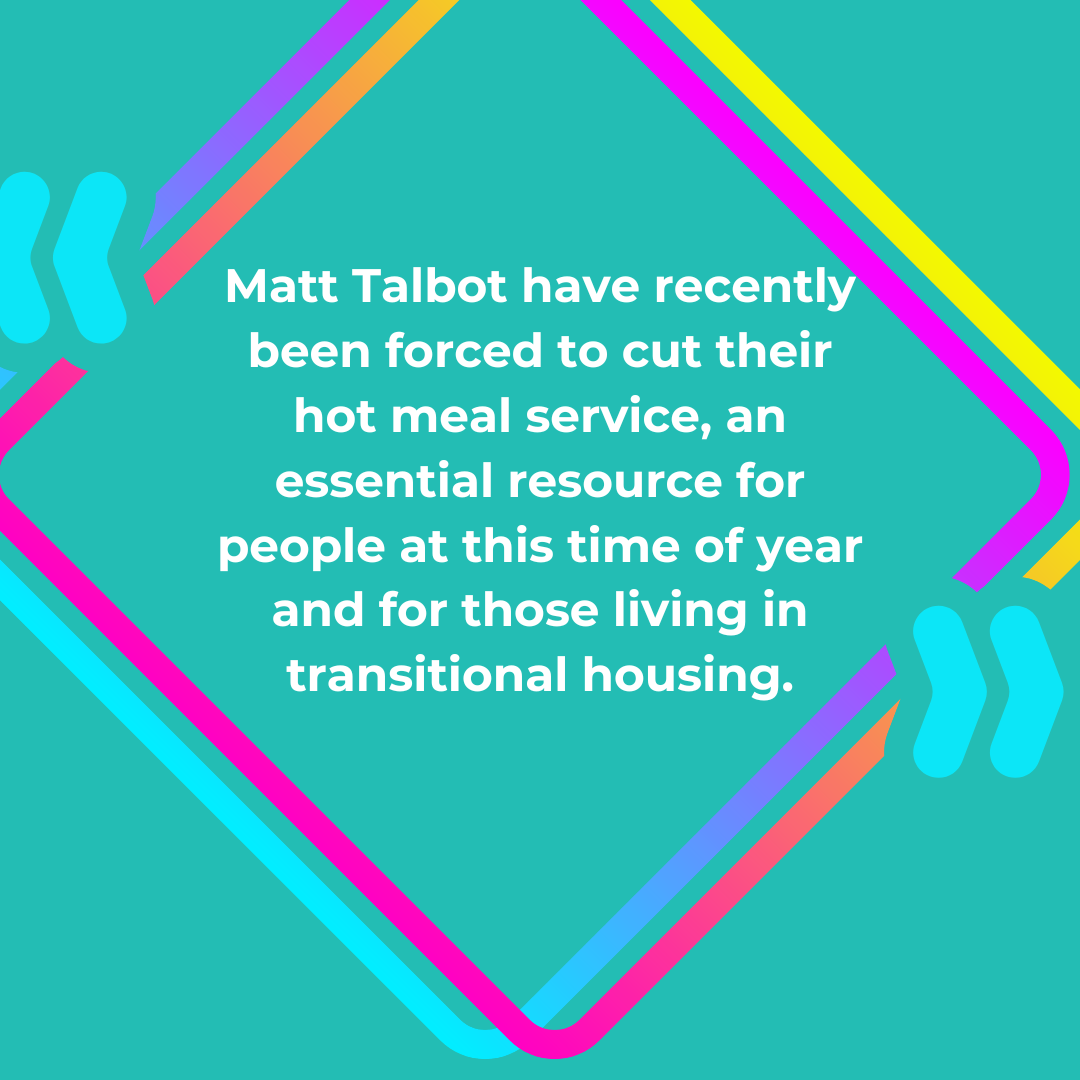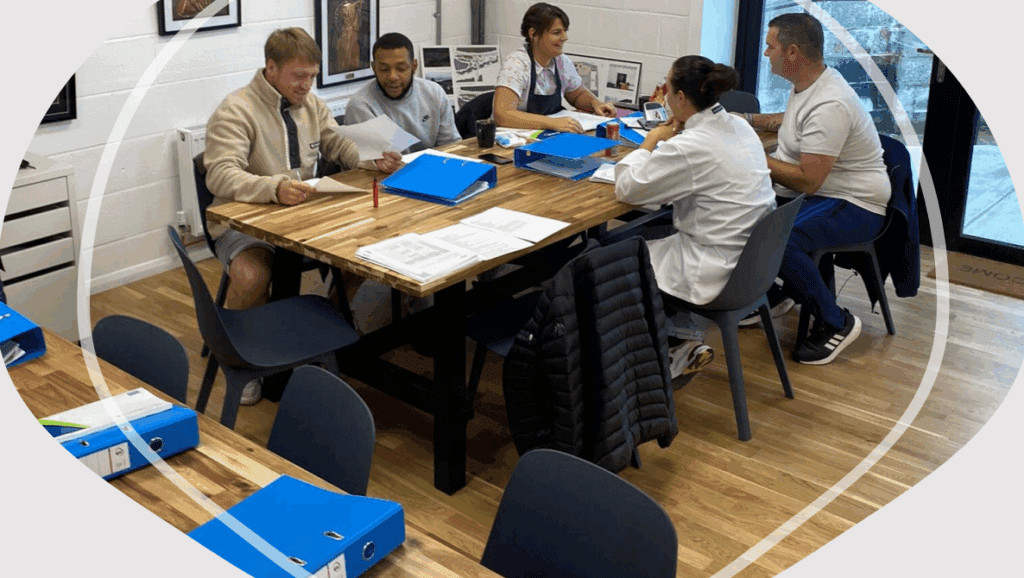They also work with people who left school early, people with learning challenges or a diagnosis of neurodiversity, and people who have been unemployed for a long time.
What I found unique about Matt Talbot’s approach is how they speak about the connection and dependence between the people accessing their programmes and the community. They told us about their ‘inside out’ approach, which not only looks at the person themselves but at their relationship with their community as well.
Mark Kavanagh, the Programme Manager, said that no matter how much work they do with learners to build their resilience, ultimately this resilience can be tested when returning to their community where the same challenges can exist.
Matt Talbot prepares their learners for this, empowering them as individuals to impact their community in a positive way. They help people evaluate their role in improving and supporting their community – any difference is a small step in the right direction. They work with the person from the inside out, and are in the process of developing the Inside Out programme, which they hope to get certified in 2023.
A Cuppa with Adult Learners
We sat in the beautifully-designed and cosy kitchen, with unique art work covering the walls, and chatted with staff and learners. I was deeply moved by the stories that people at the centre shared about the support they receive from staff at Matt Talbot in helping them return to education and to choose a career, course, or next step in an area they are passionate about.
One person spoke of using their own lived experience of addiction to take up a course in ‘Addiction Studies’. Interestingly, the course engages people from all types of community settings. This learner talked about the importance of collaboration with their classmates and with people working in frontline services such as the Gardaí. The learner described the mutual benefits of sharing experiences and perspectives.
Another learner spoke about how she volunteers with St John’s Ambulance and sees now what it is like to be on other side, helping a patient rather than being a patient. She spoke about the sense of perspective and confidence this gives her.
Programme Manager Mark said they work with learners to identify potential careers and how to get there. This mentoring and advice is very valuable to learners in helping them access education in a way that fits into their already busy lives.
Community Education in Action
We sat down with staff members, and John Farrell, a craftsperson who teaches Copperwork classes and who is a former student at Matt Talbot, told us that you can’t measure how important a simple ‘how are you’ can be and the positive role this has on people’s experience of learning.
Karen, the Senior Project Worker, took us through their approach when working with students individually and collectively. Matt Talbot’s ethos is very closely aligned with the community education approach to enable adults to live better by gaining skills, learning about themselves and how they fit into the world, and also building confidence and making connections.

Programmes and Plans for 2023
Matt Talbot are working on a number of exciting developments for 2023, including the refurbishment of their centre, which now includes a fully-functional kitchen equipped for cooking classes and newly-designed communal areas which are inviting and cosy, making it the perfect setting for a supportive learning environment.
Learners were directly involved in project managing the design and choosing how the new premises would look and feel, an example of putting the learners’ voices at the heart of what they do and ensuring the environment meets their needs.
They are also in the early stages of building a sustainable and edible garden. This will be directed by centre learners. It’s an example of the holistic nature of community education: the development of projects from the ground up, led by people who understand the community where they live and its needs, and creating something that will ultimately give back to the community they serve.
Grainne Jennings, the Centre Director, spoke about the privilege of being able to give back to the community in this way and using the centre and its facilities to foster greater collaboration among community members and community agencies to create new opportunities and address the challenges in Ballyfermot.

Impacts of the Energy and Cost-of-Living Crisis
Community education’s role in supporting people in recovery from addiction cannot be underestimated. Community education centres like Soilse and Matt Talbot empower people in a way that looks beyond their addiction and sees the whole person. They have a fundamental part in supporting people beyond rehabilitation and psychotherapy to develop a person’s self-belief and confidence. This includes the personal and social contribution they can bring to their communities through education, work, supporting their families, or collaborating with their community services.
In order to continue this work, centres like Matt Talbot need sustainable and consistent multi-annual funding to keep running effectively.The rising energy costs and cost-of-living crisis further aggravates funding challenges, putting pressure on community education centres to identify new funding streams.
This not only takes them away from important strategic and development work with learners, but also means cutbacks on wraparound services, which will ultimately impact on learners’ welfare. For instance, Matt Talbot have recently been forced to cut their hot meal service, an essential resource for people at this time of year and for those that could be living in transitional housing.
Access Routes to Third-Level Colleges
Another critical challenge is the access routes to third-level colleges and Quality and Qualifications Ireland (QQI)-accredited courses for people from diverse backgrounds. According to Centre Director Grainne, access programs help people experiencing barriers to find an alternative route to college, but the drop-out rate is still extremely high.
We spoke about how, in an ideal world, there would be no need for access programmes, which separate out people who are already experience disadvantage perhaps through addiction, poverty, or a disability.
Third-level requirements and environments should be adapted to suit all people, from all walks of life and backgrounds, with no need for alternative routes. However, AONTAS continues to champion a unified approach to tertiary education.
Wellbeing and Connection
The staff, learners and environment at Matt Talbot demonstrates the ethos of community education as such a vital support for people in their community. Success is measured not solely in certification or employment but is in a much more real and human way, like the creation of a sense of place or belonging for a person, their wellbeing and their connection to their community.
AONTAS will continue to advocate for the wider benefits of community education to be recognised, supported, and resourced, and to highlight the incredible work taking place in the community sector.
Click here for about our Community Education work.
Click here to learn more about the Matt Talbot Community Trust.





